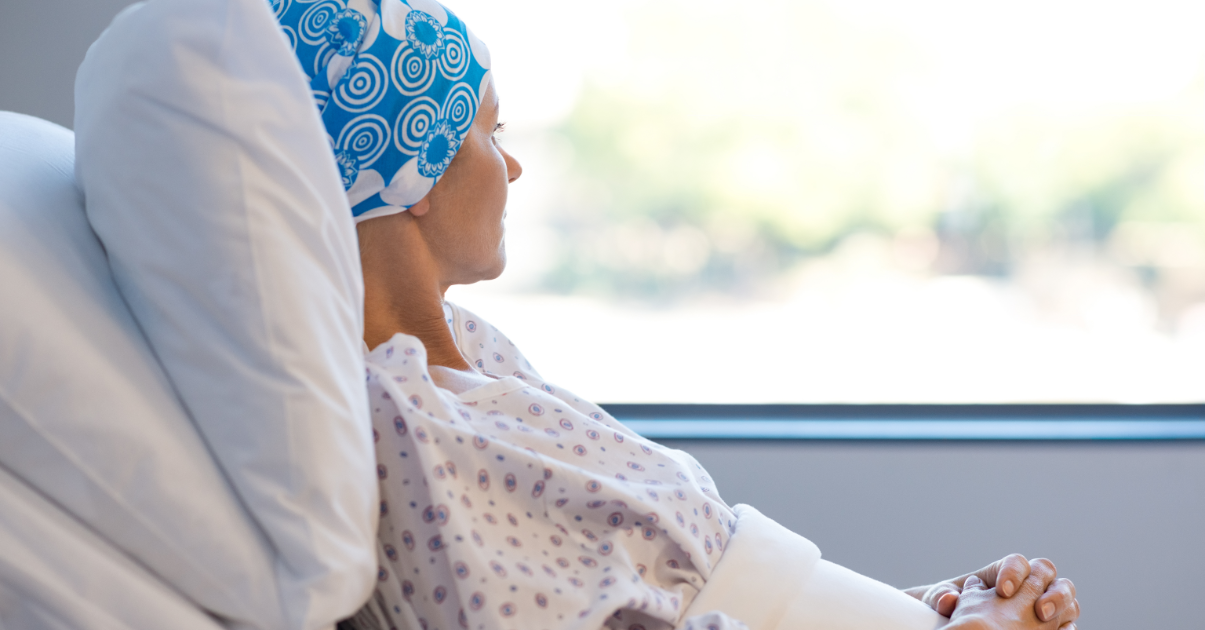Last Updated on June 26, 2022 by Laura Turner

Republished with permission from here.
One after the other, day after day it seems, I find myself in a room where the resident is breaking the news of terminal cancer to my patients, and I feel an overwhelming sadness belied by numbness. It has only been a week on internal medicine, and we have already diagnosed three unsuspecting patients with cancer.
The kind of cancer that offers little hope for remission and for which none of them had any risk factors.
Mr. X is in his 80s, Mr. Y is in his 30s and Ms. Z is in her early 60s. Mr. X was old and frail and expected to die soon, but I came to learn he had trouble sleeping because he was anxious about his health. Mr. Y has two children under the age of 2 at home and came to the hospital because he suddenly turned yellow for five days but had no other symptoms. Ms. Z who lost her hair then most of her body weight and eventually came in seeking help for her stomach pain caused by a giant mass crushing her organs.
All of them have cancer.
It’s tough. You have to put a wall up or you will be crippled by how sad these stories are– you’re right in the midst of their suffering. But some of the stories penetrate through (how can they not, after all?), and if you think about it too much, the sadness scoops out your guts and burrows in. Yes, you tell yourself that you’re doing your best to help them, to make them comfortable during their remaining days, and to even offer hope because nothing is definite and no two people are alike. But it’s been difficult to separate what I spend 13-plus hours of my day doing from my personal life. I don’t know if I’m alone in feeling this. Maybe I’m a bleeding heart. Maybe I’m human.
It’s hard to convey the magnitude of the past few days, but standing there and looking into the eyes of an unsuspecting person when they are told that they have terminal cancer is something surreal. Your natural instinct is to feel what’s going on, but your body tightens up and you suppress it. You watch them, the sadness breaking through on your face but the tears staying in, and see the disbelief and shock as they try to process what you’re telling them. I haven’t seen any tears yet. People have remained calm and stoic. But imagining the tears that they will invariably shed and the long, lonely days in the hospital that leave them to their thoughts is worse to me than seeing them break down and cry in person. I know their diagnosis isn’t about me, but when spending almost 80 hours a week being consumed by their illness and what we can and cannot do to help them, it begins to wear on me.
I have learned about their lives during our time together. And with each new piece of information, I find it harder to distance myself from their stories. I think about them when I got home, wondering how they are doing and what their lab values look like. In the back of my mind, they’re always there. I feel cowardly when I dread going to their rooms in the morning because each time I feel myself fighting the human instinct to absorb the sadness and truly feel the magnitude of their illness. I came into medicine to talk to people and to hear their stories. And yet, I’m shying away from them because seeing their faces will put a face to the declining lab values and dismal scans I’ve looked at all day. It’s shitty of me, but it’s what I’ve been doing.
I knew going into medical school that I wasn’t a fan of taking care of very ill patients but that it would be a necessary part of my training. So, I’m surprised by how much I have enjoyed this rotation and the joy that comes with being autonomous and a useful member of a medical team. I’ve learned a lot taking care of the most ill and destitute patients that Los Angeles has to offer, but in instances like this when all of the sadness is clumped together, it’s tough to find perspective. Yes, it’s an unfortunate part of medicine. Yes, it will pass and I’ll move onto patients with congestive heart failure or multiple broken bones, but in this moment, it’s pretty damn shitty.
Here’s to hoping tomorrow will be better and here’s to being grateful for what you have, because my patients have taught me that it can be over in an instant. There’s no happy ending to this story, and there’s no neat message. It just is.
in-Training is the online magazine for medical students. It is the agora of the medical student community, the intellectual center for news, commentary, and the free expression of the medical student voice. All articles on in-Training are contributed by medical students around the world and are edited by its staff of volunteer medical students. Follow us on Facebook, Twitter and Tumblr, or email us to get involved.
